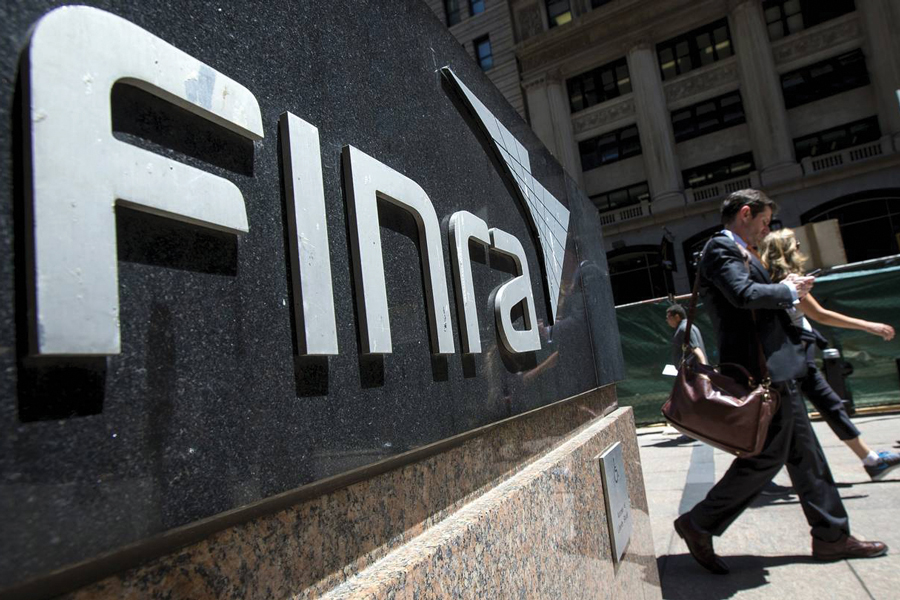

Finra has launched an examination sweep probing brokerages’ activity involving special purpose acquisition companies.
The Financial Industry Regulatory Authority Inc. is delving into how firms offer and provide services to SPACs, according to an examination letter posted on the regulator’s website last week. The increasingly popular vehicles provide a way for retail investors to participate in the public launch of private companies outside a traditional initial public offering.
SPACs are shell companies that raise capital through their own initial public offering and then have up to two years to identify and acquire a private company that then goes public through the merger.
Proponents of the vehicles say they give ordinary investors a chance to profit from private companies whose shares are otherwise restricted to investors who meet certain income and wealth thresholds.
But the two stages of the complicated process — both the launch of the SPAC shell and the so-called de-SPAC merger — have raised concerns among securities regulators about potential investor harm.
In its exam sweep, Finra is asking targeted firms to detail their SPAC activities from July 1, 2018 through Sept. 30 of this year. The broker-dealer self-regulator will review the firm’s policies and procedures related to public offerings, due diligence, suitability and communications with customers, among other areas. It also will assess how firms choose customers for SPAC recommendations.
The launch of the Finra sweep comes shortly after Securities and Exchange Commission Chairman Gary Gensler indicated he has asked agency staff for a proposal on how to update rules to ensure “investors are better informed about the fees, costs, and conflicts that may exist with SPACs.”
Regulators don’t want to get caught flat-footed on the SPAC boom the way they were during the dotcom surge, said Kurt Schacht, head of policy advocacy at the CFA Institute. “They want to make sure they’re not running into the same market-integrity and investor protection issues we experienced during the dotcom crisis with those IPOs,” Schacht said.
SPACs have been around for years, but their popularity has surged recently. The number of SPACs increased from 59 in 2019 to 461 so far this year, although the launch of new SPACs has cooled in the last few months.
That means that nearly 500 SPACs will be looking for private-equity company targets in coming months.
“That could lead to a frenzied acquisitions market in the next 12 months,” Schacht said. “[Regulators] are worried about that, and rightly so.”
Finra’s SPAC exam sweep dovetails with its recent sweeps on brokers’ use of social media for prospecting and on options trading, said Alex Russell, managing director at Bates Group, a compliance and legal consulting firm.
“Their goal is to get better visibility into these corners of the market that have become more sizable,” Russell said.
Finra does not disclosure the names of targeted firms nor the number that are involved in a sweep exam. But the results of the probe could shed light on the extent to which registered representatives are recommending SPACs as investments for retail customers.
“That’s the million-dollar question right now,” Russell said. “That’s something the market as a whole is interested in learning.”
The SPAC phenomenon has inspired broad reaction. The CFA Institute, for instance, has established a SPAC working group. Finra is “probably trying to exam why did this all of a sudden tic up in popularity again,” Schacht said.

Former Northwestern Mutual advisors join firm for independence.

Executives from LPL Financial, Cresset Partners hired for key roles.

Geopolitical tension has been managed well by the markets.

December cut is still a possiblity.

Canada, China among nations to react to president-elect's comments.
Streamline your outreach with Aidentified's AI-driven solutions
This season’s market volatility: Positioning for rate relief, income growth and the AI rebound
